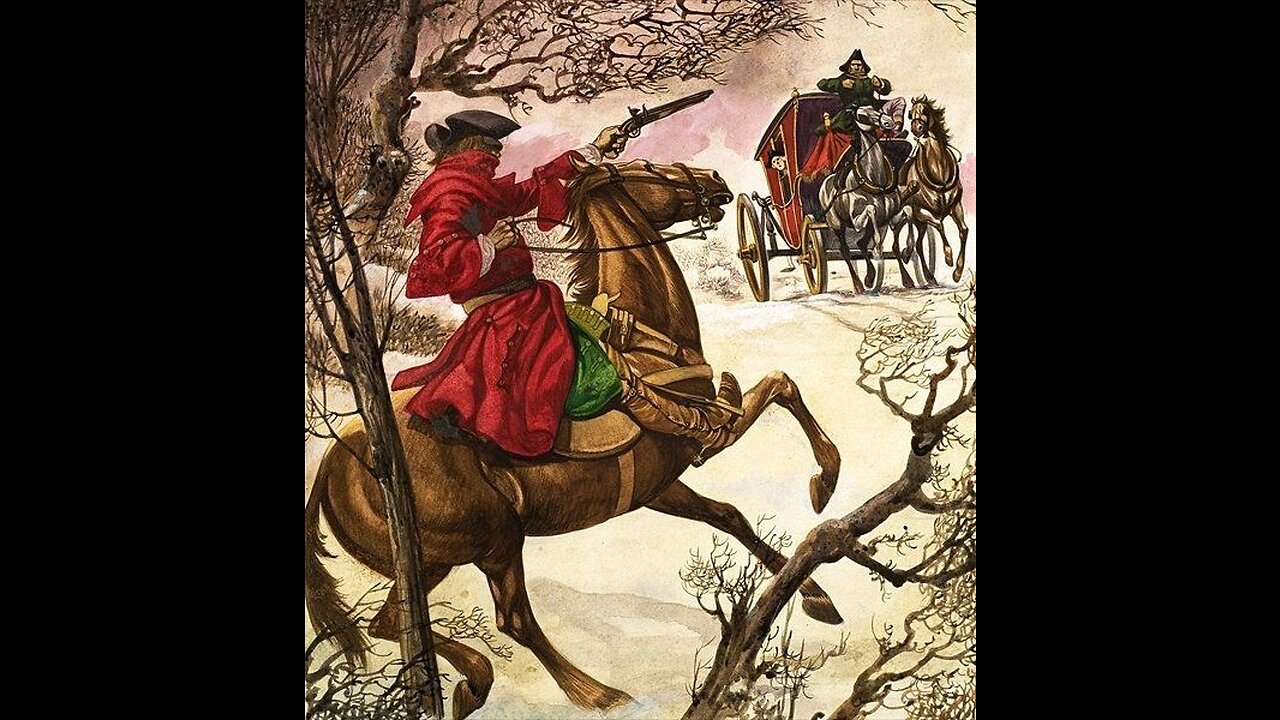Premium Only Content

"Paul Clifford", Chapter 22, by Edward Bulwer-Lytton
Outlaw. Stand, sir, and throw us that you have about you!
Val. Ruffians, forego that rude, uncivil touch!
The Two Gentlemen of Verona.
----
There at the beginning where Clifford asks the woman at the pub "Are Augustus and Ned here?", the text actually has the two names as blanks, and the sentence reads rather:
"Are --- and ---- here?" asked he of the old woman, as he entered, mentioning the cant words by which, among friends, Tomlinson and Pepper were usually known.
But I have no idea how to read blanks like that into a recording, so a nice touch of detail was lost in my reading that those character have other names they go by. Pity. It is not clear why the author feels so compelled to blank out those names right here. To what end? My guess is laziness. It's certainly not lack of creativity, the entire novel stands as a testament to the creative abilities of the author, but apparently there were some details he just couldn't be bothered about, and that's gotta be laziness.
Oliver = the moon
mudger, as best I can tell, is slang for a term too vulgar for me to repeat here. But it seems rather obscure and I could be wrong. One thing is for sure: it is not a complimentary word!
lauk, I believe, is a distinctly British (perhaps even more specifically Cockney?) interjection used instead of "Lord!"
aurigal: of or pertaining to a chariot
horse pistol: a large pistol carried at the pommel of the saddle by a rider In Britain at the time of the setting of this story, horse pistols would have most commonly been either .71 or .65 calibre, that's 18 or 16.5 mm. That's a big pistol!
hunting watch: a watch with a hinged metal lid or case (hunting case) to protect the crystal
potation: a drink. Obvious enough from context, but not a word you hear any more, that's for sure! But, it shares an etymological root with the word you do hear, at least in the context of fantasy role-playing games, of potion. That being the old French word 'potare'.
bowl of bishop: it seems that term was popularly used by Charles Dickens, but I don't specifically recall it myself. It's heated port wine with various seasonings and spices (lemon or orange, clove, mulling spices).
To follow along: https://www.gutenberg.org/files/7735/7735-h/7735-h.htm#link2HCH0022
-
 47:50
47:50
Candace Show Podcast
6 hours agoBREAKING: Judge Makes Statement Regarding Taylor Swift's Text Messages. | Candace Ep 155
113K109 -

Josh Pate's College Football Show
3 hours ago $0.29 earnedCFB’s Most Hated Teams | FSU & Clemson Future | Big Ten Win Totals | Star Rankings Overrated?
14.5K -
 1:33:47
1:33:47
CatfishedOnline
5 hours agoGoing Live With Robert - Weekly Recap
27.8K -
 55:18
55:18
LFA TV
1 day agoEurope’s Sudden Turn Against America | TRUMPET DAILY 3.6.25 7PM
32.2K3 -
 4:21
4:21
Tundra Tactical
4 hours ago $2.12 earnedPam Bondi MUST Enforce Due Process NOW!
23.7K1 -
 56:42
56:42
VSiNLive
5 hours agoFollow the Money with Mitch Moss & Pauly Howard | Hour 1
48K1 -
 1:05:32
1:05:32
In The Litter Box w/ Jewels & Catturd
1 day agoShalom Hamas | In the Litter Box w/ Jewels & Catturd – Ep. 756 – 3/6/2025
103K37 -
 1:23:00
1:23:00
Sean Unpaved
7 hours ago $3.19 earnedNFL Free Agency
53.4K3 -
 18:25
18:25
Stephen Gardner
6 hours ago🔥The REAL REASON the Epstein Files are being HIDDEN | I CONFRONT Alan Dershowitz for details!
66.2K121 -
 1:58:44
1:58:44
The Quartering
10 hours agoTrump To Charge USAID Staff, Campus RIOT Erupts, Theo Von & Candace Owens, Ukraine Gets Worse!
117K72